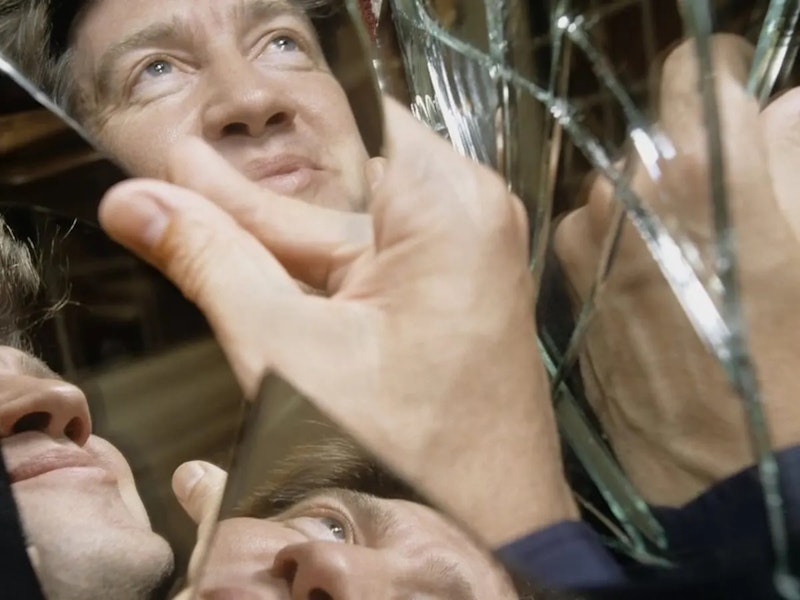For any cinephile, finding and watching a film or a documentary about filmmaking is a treat. François Truffaut’s Day for Night (1973) or the documentary Hitchcock/Truffaut (2015) come to mind. Every film is, in some fashion, a nod or a reference to yet another film, and the journey of that kind never ends. The impossibility of such an end is what can be both frustrating and beautiful in the eyes of the filmmaker and the cinephile.
Odes to films can be satisfying, engaging, and lead the audience to probe more questions about the nature of cinema and filmmaker’s particular choices. Alexandre O. Philippe’s documentary, Lynch/Oz (2022)—now streaming on the Criterion Channel—wants so badly to accomplish that but the road to Oz is paved with overly analytical gray pavers.
Philippe’s premise is fascinating: why and how has the great American surrealist, David Lynch, been influenced by Victor Fleming’s The Wizard of Oz (1939), which has been part of not only the American cinematic history but American consciousness and culture?
In order to answer those questions, Philippe engages other film directors, such as Karyn Kusama and John Waters to talk about this elusive connection between Lynch and The Wizard of Oz. The documentary isn’t as straightforward as might be expected. It doesn’t follow the usual form; instead, in a series of voiceover “chapters,” Philippe lets the filmmakers elaborate on the connection.
As the carefully-placed and edited images flash before our eyes, each filmmaker has the podium. We only hear their voices, with some archival footage of Lynch during specific interviews. Lynch is famously silent about the meaning of his work. He evades talking about different characters and their identity. The more the audience seeks to understand, the less Lynch speaks. Other filmmakers, critics, and movie lovers are left to figure out what it all means. Is Mulholland Drive (2001) just a dream? Is Jeffrey Beaumont in Blue Velvet (1986) just another pervert? What happened at the end of Twin Peaks: The Return (2017)? Who is “Judy?”
In order to understand Lynch, in Philippe’s documentary all the roads lead to the Wizard of Oz. Although there are many visible connections, including the fact that Lynch has spoken on several occasions about his love of The Wizard of Oz and its place in the American consciousness, Philippe’s account turns every small detail in Lynch’s work into a direct correlation with The Wizard of Oz.
“Judy” about which David Bowie’s Phillip Jeffries will not talk about is “Judy Garland,” and in addition, Bowie’s wearing red shoes. Laura Dern’s Lula in Wild at Heart (1990) tries to desperately click the heels of her red stilettos to escape the reality of just having been assaulted. Like Dorothy, almost all of the characters in Lynch’s films are trying to get back “home,” wherever that might be.
All of this is plausible. But as the documentary moves forward with film “chapters,” the connections between Lynch and Oz become superficial and forced. Anything can be connected if we find the way to do so, but it doesn’t make it true. Philippe’s excellent intention and idea ends up looking more like an academic conference in which seven people present papers, yet there’s no way for us to respond.
Another issue with Lynch/Oz is that too much importance is placed on The Wizard of Oz itself. It’s true that the theme of friendship and return to home is present in The Wizard of Oz and Lynch’s work. But Philippe treats The Wizard of Oz as a definitive account of such themes. Fleming’s film (and L. Frank Baum’s book) didn’t come up with the idea of the hero's return (Homer’s Odyssey) home or the desire for home, which may never be fulfilled.
As much as the documentary aims to show love of both Lynch and The Wizard of Oz, it ends up as an inward exercise of analysis that gets in its own way. The road to understanding and even love of Lynch’s work is blocked because we’re closed in by a few select opinions that sound like dreamy pronouncements.

